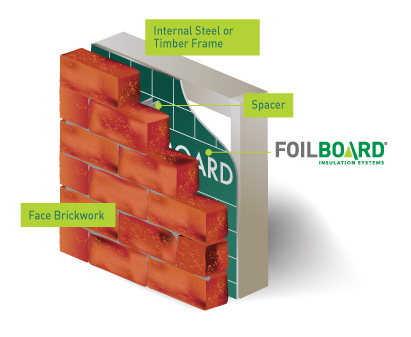Do It Yourself Cavity Wall Insulation

Cavity wall insulation consists of filling the spaces between the cavities with some porous material so that the movement of air is blocked.
Do it yourself cavity wall insulation. Cavity wall insulation has been widely noted as an effective way of insulating your house and is often considered to be more effective. It has long been argued that cavity wall insulation is inefficient and that there could be a much more efficient solution to. Effective wall insulation is also a great way to lower your carbon footprint. Holding the nozzle and rag into place ask your helper to start the machine to blow the insulation in.
As up to 33 of the heat produced in your home is lost through un insulated cavity walls it makes sense if only from a purely financial point of view to have them insulated. The rag will prevent insulation from coming back out of the stud bay hole. The earliest use of cavity wall was way back in greek and roman times but it wasn t until much later that things have got interesting. Cavity wall construction ready for cavity insulation.
But wall cavities are more difficult so do it yourself installation is not recommended. In early days of using cavity wall construction 1920 s in modern domestic buildings the cavity was thought to be enough of a barrier for damp. It makes adding insulation to your attic a breeze. Get a free 24 hour blown in machine.
When rigid foam insulation boards are used to insulate the walls of an unventilated crawlspace they can be bonded to the wall using recommended adhesives. We love our diyers so take up our incentive to improve your attic insulation situation yourself. This means that not only will your house stay warmer but you will also end up paying less for your heating bills. The cavity wall insulation is highly regarded as a green method to warm up the home and simultaneously it reduces the heating costs as it helps minimize heat loss.
Wall insulation is beneficial because it helps prevent heat loss. You get a free blown in machine rental with your insulation purchase. Blown in insulation is installed using blowing machines. A wall cavity may have older fiberglass batts older loose blown in wall insulation as opposed to dense packed cellulose older fluffed in fiberglass or even vermiculite or perlite it happens.
Cavity wall insulation is the process of injecting an insulating material into the gap between the outer brickwork and the inner masonry skins of an external wall. With no shortage of companies offering blown in cellulose competition keeps prices lower for this type of insulation. Blowing in attic cellulose is conceivably a do it yourself job. Although these gaps are filled with wood or metal they do not have the same thermal properties as insulation.
The cavity insulation is installed between the wall studs which means that there are gaps in the insulation.














































